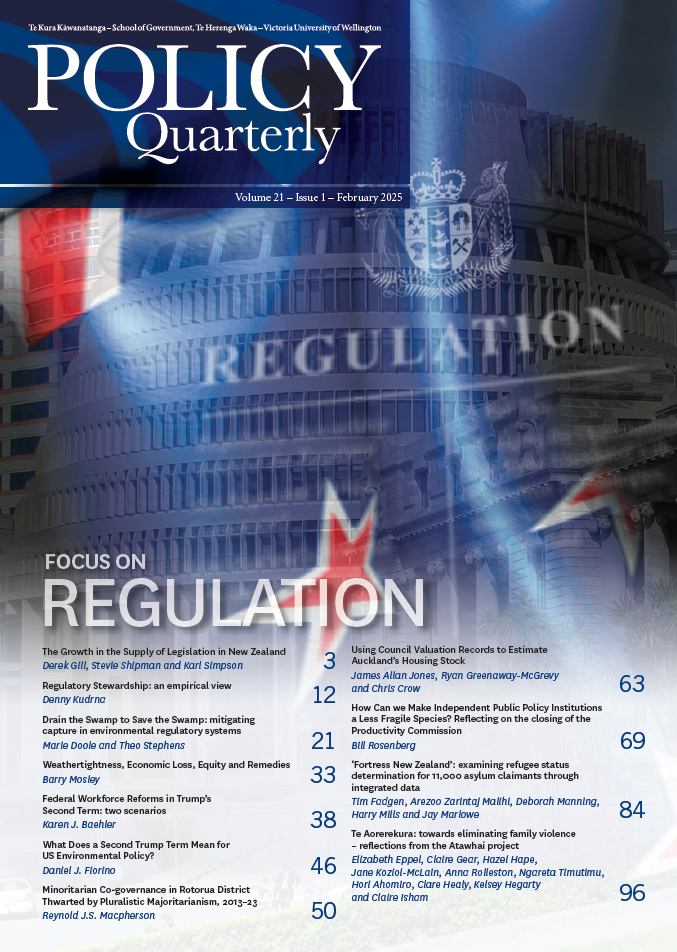Minoritarian Co-governance in Rotorua District Thwarted by Pluralistic Majoritarianism, 2013–23
DOI:
https://doi.org/10.26686/pq.v21i1.9726Keywords:
minoritarianism, majoritarianism, co-governance, Rotorua Lakes Council, Te Arawa, Ngäti Whakaue, Rotorua District Residents and RatepayersAbstract
Based on qualitative research, including participant observation, this article examines Rotorua Lakes Council’s 2013–23 pursuit of 50/50 co-governance with Te Arawa iwi. Despite some Treaty-based support, public opinion leaned towards equal suffrage. Te Tatau o Te Arawa nominees were given places on council subcommittees with voting rights. Concerns over authoritarianism, financial mismanagement, secrecy and homelessness then spurred opposition to 50/50 co-governance. A 2021 local bill for full co-governance was denied over potential Bill of Rights conflicts. The Local Government Commission’s determination of proportional representation for Rotorua, using general, Māori and rural wards, highlights New Zealand’s struggle to balance majority rule and minority protections. Pluralistic majoritarianism is suggested as a pathway to more inclusive governance in local and central governance.
Downloads
Downloads
Published
Issue
Section
License
Permission: In the interest of promoting debate and wider dissemination, the IGPS encourages use of all or part of the articles appearing in PQ, where there is no element of commercial gain. Appropriate acknowledgement of both author and source should be made in all cases. Please direct requests for permission to reprint articles from this publication to Policy-Quarterly@vuw.ac.nz.



